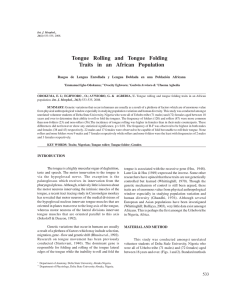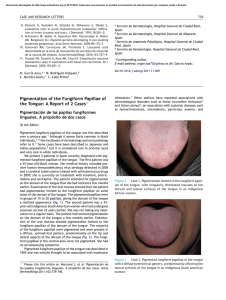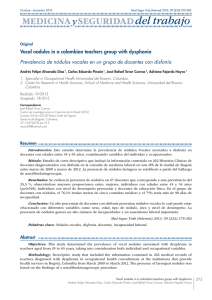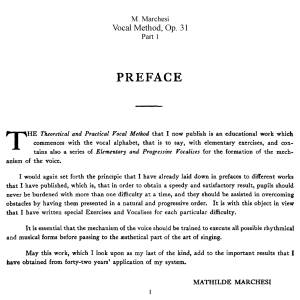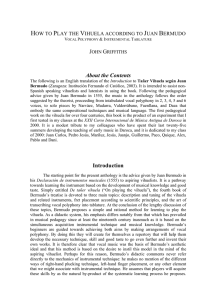Oral Motor Exam: Part One Vocabulary: ENGLISH SPANISH Part
Anuncio
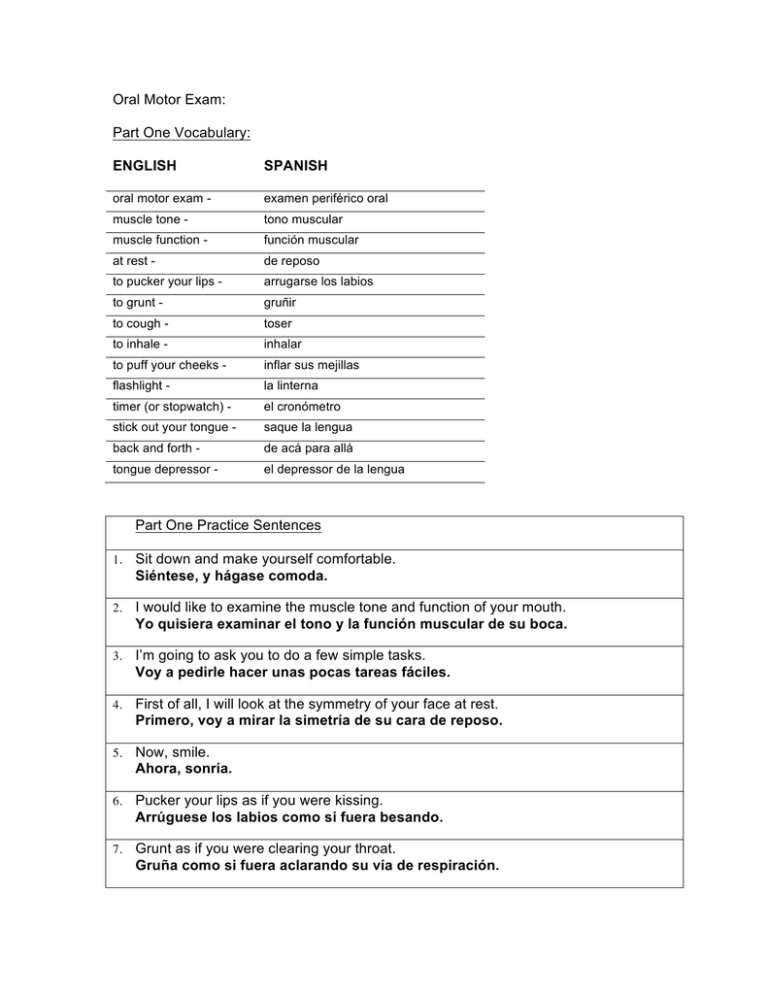
Oral Motor Exam: Part One Vocabulary: ENGLISH SPANISH oral motor exam - examen periférico oral muscle tone - tono muscular muscle function - función muscular at rest - de reposo to pucker your lips - arrugarse los labios to grunt - gruñir to cough - toser to inhale - inhalar to puff your cheeks - inflar sus mejillas flashlight - la linterna timer (or stopwatch) - el cronómetro stick out your tongue - saque la lengua back and forth - de acá para allá tongue depressor - el depressor de la lengua Part One Practice Sentences 1. Sit down and make yourself comfortable. Siéntese, y hágase comoda. 2. I would like to examine the muscle tone and function of your mouth. Yo quisiera examinar el tono y la función muscular de su boca. 3. I’m going to ask you to do a few simple tasks. Voy a pedirle hacer unas pocas tareas fáciles. 4. First of all, I will look at the symmetry of your face at rest. Primero, voy a mirar la simetría de su cara de reposo. 5. Now, smile. Ahora, sonría. 6. Pucker your lips as if you were kissing. Arrúguese los labios como si fuera besando. 7. Grunt as if you were clearing your throat. Gruña como si fuera aclarando su vía de respiración. 8. Cough. Tosa. 9. Inhale deeply. Inhale profundamente. 10. Puff out your cheeks. Infle sus mejillas. 11. Try not to let any air escape while I press lightly on your cheeks. Trate de no dejar escapar el aire mientras que yo presiono ligeramente en sus mejillas. 12. Open your mouth. Abra su boca. 13. I’m going to use a flashlight. Voy a usar una linterna. 14. Say, “ah ah ah ah ah.” Diga, “ah ah ah ah ah.” 15. Say, “oo ee oo ee oo ee.” Diga, “u i u i u i.” 16. Say, “ah” for as long as you can. Diga, “ah” lo mas largo que pueda. 17. I am going to use the timer. Voy a usar el cronómetro. 18. Stick out your tongue. Saque la lengua. 19. Move your tongue back and forth. Mueva su lengua de acá para allá. 20. Press your tongue against the tongue depressor. Empuje su lengua contra el depresor de la lengua. Part Two Vocabulary: ENGLISH SPANISH lips - los labios tongue - la lengua hard palate - el paladar duro soft palate / velum oropharynx - el velo del paladar; velo paladar; paladar blando el orofaringe vocal Folds – el pliegue vocal (vocales verdaderas) trachea - la tráquea esophagus - el esófago Part Two Practice Sentences 1. I want to see the muscle tone of your lips and if you can keep them closed tightly. Quiero ver el tono muscular de sus labios y que puede mantenerlos bien apretados. 2. I would like to examine the muscle tone and function of your mouth. Yo quisiera examinar el tono y la función muscular de su boca. 3. A strong tongue is necessary to help us form a bolus of food prior to swallowing efficiently. Una lengua fuerte es necesario para ayudarnos en formar un bolo de comida antes de deglutirlo. 4. When you say, “ah ah ah,” I want to see your velum elevate. Cuando dice, “ah ah ah,” quiero ver su velo paladar elevando. 5. The hard palate is the roof of your mouth. El paladar duro es el techo de su boca. 6. The velum is the soft part of the roof of your mouth and it is just behind your hard palate. El velo paladar es la parte suave del techo de su boca y se encuentra inmediatamente detrás de su paladar duro. 7. The uvula is the point that hangs down at the back of the soft palate. La úvula es el punto que cuelga en la parte posterior del velo paladar. 8. The vocal folds come together to create our voice and to protect our airway. Las vocales verdaderas se acercan para crear nuestra voz y para proteger a nuestra vía de respiración. 9. The oropharynx is the space found directly behind the oral cavity from the uvula to the top of the larynx. El orofaringe es el espacio que se encuentra directamente detrás del espacio oral, entre la úvula y el pliegue vocal. 10. The trachea is the tube below the vocal folds that connects to our lungs. La tráquea es el tubo debajo del pliegue vocal que se conecta con nuestros pulmones. 11. The esophagus is the tube that connects our oropharynx to our stomach. El esófago es el tubo que conecta el orofaringe con nuestro estómago.



